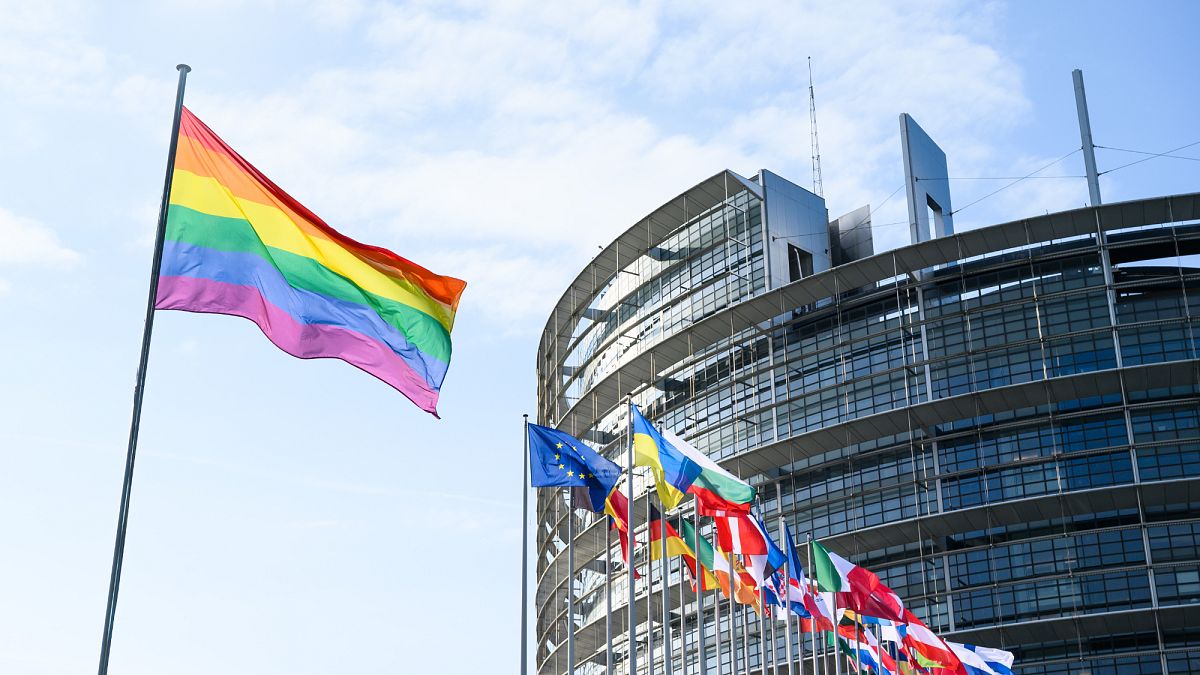A cross-party group of Members of the European Parliament is preparing to travel to Hungary to protest the government’s decision to ban this year’s Budapest Pride, organisers confirmed on Friday during a press conference in Brussels, urging the Commission to take legal action.
Last month the Hungarian parliament passed an amendment to the constitution codifying the law that the ruling party fast-tracked in March, banning public events that are considered to be in breach of the Child Protection Act, which heavily restricted depictions of homosexuality and gender reassignment. Events held by the LGBTQ+ community, such as the yearly Pride parade in Budapest that draws thousands of visitors, were prohibited under the new law.
Activists and MEPs are urging the European Commission to take immediate legal action to overturn the ban. They recommend two main steps: requesting interim measures from the Court of Justice of the EU as part of the ongoing infringement procedure against Hungary’s 2021 anti-LGBTIQ+ law, and launching a new infringement procedure specifically targeting the restriction on freedom of assembly.
During a press conference for the International Day Against Homophobia, Biphobia and Transphobia, the MEPs argued the ban is part of a broader clampdown on civil liberties and a violation of EU law.
“We will be marching on June 28th on the streets of Budapest. No matter what, we will not comply with this illegal ban,” said Viktória Radványi, President of Budapest Pride. “We haven’t seen any action from the European Commission in the past two months… So we are here today in Brussels to talk about this issue and to see what type of concrete legal actions we can see from the Commission.”
Radványi urged the Commission to use existing legal tools, including requesting interim measures in the ongoing infringement procedure against Hungary’s 2021 anti-LGBTIQ+ law. “This current ban on Pride marches is just a verbatim extension of the 2021 propaganda law,” she said.
The European Court of Human Rights has previously ruled that banning pride events breaches human rights protections. In 2017, the Court criticised Russia’s pride ban and considered that “by adopting such [anti-LGBTI propaganda] laws the authorities reinforce stigma and prejudice and encourage homophobia, which is incompatible with the notions of equality, pluralism and tolerance inherent in a democratic society”.
“By banning Pride, the Hungarian government wants to silence opposition,” said Marc Angel, S&D MEP and co-chair of the LGBTIQ+ Intergroup. “Next Tuesday in LIBE committee, there will be an important vote on this year’s rule of law report and the EPP group has requested separate votes on all paragraphs that include the LGBTQI+ rights,” he said, referring to language on same-sex marriage, gender recognition and conversion practices. He urged centre-right MEPs to support progressive amendments and called on the press to monitor the outcome, which will be finalised during a mini plenary session in Brussels on Thursday.
A delegation of MEPs from across the political spectrum from The Left to the European People Party is expected to join Pride march in Budapest next month. The final list has not yet been confirmed an parliamentary assistant told Euronews.
“We are at a crossroad right now,” said Dutch Green MEP Kim van Sparrentak, adding: “We’re at a point where we’re really going to see whether the European Commission is really going to act and not only talk about the fact that we’re promoting European values and we stand for a union of equality.”
Activists from Romania, Bulgaria and Italy warned that the situation is not limited to Hungary, citing rising violence, legal crackdowns and public hostility against LGBTIQ+ people across the region.
This week, ILGA-Europe, a Brussels-based NGO advocating for queer rights, published its annual ranking of 49 European countries, assessing them on a scale from 0% (gross violations of human rights, discrimination) to 100% (full respect for human rights and equality).
Hungary is ranked 37 of 49 countries – the lowest the country ever been on the ranking. Russia and Azerbaijan are at the bottom of the list, while Malta and Belgium lead the ranking.
